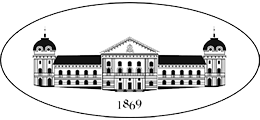Assist. Prof. Francesco Dall’Aglio, Dr.
e-mail: fra(dot)dallaglio(at)gmail(dot)com
17.08.1972, Naples (Italy)
1. MAIN FIELDS OF RESEARCH
Medieval History, Medieval Historiography, Modern and Contemporary Medievalism, Medieval Sources (Latin, Greek, Old French), Prosopography
2. ACADEMIC COMPETENCIES AND CAREER
Еducation: MA: University of Naples ‟L’Orientale” – Languages and Culture of Eastern Europe; PhD, University of Rome ‟La Sapienza” – History of Europe
Positions held: Research Assistant, Institute for Historical Research, Bulgarian Academy of Sciences – since 2017
Degree and academic rank: Assist. Dr.
Membership in academic organizations and associations: Society for the Study of the Crusades and the Latin East; Associazione Italiana di Studi sul Sud-Est Europeo; Associazione Italiana degli Slavisti
Specializations and fellowships: Istituto Italiano per gli Studi Storici, 2004-2006
Participation in joint projects: Edition (paper) of the Hungarian sources pertaining to the history of Bulgaria in the Middle Ages (Institute for Historical Research, Bulgarian Academy of Sciences); ‟Prosopography of a Fragmented World (13th Century)”, Austrian Academy of Sciences (up to 2024)
Individual research projects: Tentative Empires: Bulgaria and the Latins of Constantinople, 1185-1261 (in print 2021, Brepols);
Teaching: 2008-2009, University of Naples ‟L’Orientale” (History of Eastern Europe)
Languages: Italian, Bulgarian, English, French, Latin, Ancient Greek, Old French
3. PUBLICATIONS
Books:
Innocenzo III e i Balcani: fede e politica nei Regesta pontifici [Innocent III and the Balkans: Faith and Politics in the Vatican Registers], Naples 2003, 175 pp.
Papers:
- “The Bulgarian Siege of Thessaloniki in 1207: between History and Hagiography”, Eurasian Studies, I/2, (2002), pp. 263-282.
- “Magia e astrologia in Niceta Coniate” [Magic and Astrology in Niketas Choniates], in P. Lucentini, I. Parri, V. Perrone Compagni, (eds.), Hermetism from Late Antiquity to Humanism – La tradizione ermetica dal mondo tardo-antico all’Umanesimo. Atti del Convegno internazionale di studi, Napoli, 20-24 novembre 2001 (Turnhout: Brepols, Instrumenta Patristica et Mediaevalia 40, 2003), pp. 569-576.
- “L’immagine della Bulgaria in Occidente al tempo della IV crociata” [The image of Bulgaria in the West at the time of the Fourth Crusade], Annuario. Istituto Romeno di cultura e ricerca umanistica di Venezia, 5 (2003), pp. 79-103.
- “La Bulgaria: l’oriente e l’occidente d’Europa” [Bulgaria: the East and West of Europe], in Trent’anni di presenza nel mondo (Naples: Istituto Italiano per gli Studi Filosofici, 2005), pp. 319-326.
- “Quel che è di Cesare, quel che è di Dio: i Balcani tra cattolicesimo, ortodossia e ragion di stato, 1185-1241” [What’s of Caesar, what’s of God: the Balkans between Catholicism, Orthodoxy and Reason of State, 1185-1241”], in R. De Giorgi, S. Garzonio, G. Ziffer (ed.), Gli studi slavistici in Italia oggi. Atti del IV Congresso italiano di slavistica (Udine, 20-23 settembre 2006) (Udine: Editrice Universitaria Udinese, 2007), pp. 137-144.
- “The Military Alliance between the Cumans and Bulgaria from the Establishment of the Second Bulgarian Kingdom to the Mongol Invasion”, Archivum Eurasiae Medii Aevi, 16 (2008/2009), pp. 29-54.
- “Contra perfidum Assanum: Gregorio IX e il progetto di crociata contro Bosnia e Bulgaria, 1235-1241” [Contra perfidum Assanum: Gregory IX and the Project of a Crusade against Bosnia and Bulgaria, 1235-1241], Rivista Storica Italiana, CXXI/3 (2009), pp. 991-1027.
- “La nazione prima del nazionalismo: Paisij Hilendarski e la Istorija Slavenobolgarskaja” [Nation Before Nationalism: Paisij Hilendarski and the Istorija Slavenobolgarskaja], Europa Orientalis 29 (2010), pp. 225-254.
- “In ipsa silva longissima Bulgariae: Western Chroniclers of the Crusades and the Bulgarian Forest”, Bulgaria Mediaevalis 1 (2010), pp. 405-418.
- “Qualche considerazione sulla fondazione del ‘Secondo regno Bulgaro’” [Some Considerations about the Foundation of the ‘Second Bulgarian Kingdom’], Ricerche Slavistiche 9 (55) (2011), pp. 55-64.
- “Crusading in a Nearer East: the Balkan Politics of Honorius III and Gregory IX (1221-1241), in M. Balard (ed.), La Papauté et les croisades / The Papacy and the Crusades. Actes du VIIe Congrès de la Society for the Study of the Crusades and the Latin East/ Proceedings of the VIIth Conference of the Society for the Study of the Crusades and the Latin East (Farnham: Ashgate, 2011), pp. 173-184.
- “Shifting Capitals and Shifting Identities: Pliska, Preslav, Tărnovo and the Self-Perception of a Medieval nation”, Bulgaria Medievalis 2 (2011), pp. 587-601.
- “The Second Bulgarian kingdom and the Latin Empire of Constantinople: a general overview”, Palaeobulgarica 37/1 (2013), pp. 109-117.
- “Propter multos nostros contrarios: le disavventure dei legati bulgari e pontifici nei primi anni del tredicesimo secolo” [Propter multos nostros contrarios: the Misadventures of the Bulgarian and Pontifical Legates in the First Years of the Thirteenth Century], Mélanges de l’École française de Rome – Moyen Âge [En ligne], 125/1 (2013).
- “The Interaction between Nomadic and Sedentary Peoples on the Lower Danube: the Cumans and the ‘Second Bulgarian Empire’”, in Florin Curta and Bogdan-Petru Maleon (eds.), The Steppe Lands and the World Beyond Them. Studies in Honor of Victor Spinei on His 70th Birthday, (Iaşi: Editura Universității “Alexandru Ioan Cuza”, 2013), pp. 299-312.
- “With Pride and Prejudice: Paìsiy Hilendàrski and the Perception of Bulgaria’s neighbours in the Late Eighteenth Century”, in Giuseppe Motta (ed.), Dynamics and Policies of Prejudice from the Eighteenth to the Twenty-first Century (Newcastle upon Tyne: Cambridge Scholars Publishing, 2018), pp. 15-25.
- ‛As it Had Been in the Past”: the Idea of National Continuity in the Estаblishment of the Second Bulgarian Kingdom, in: Ivan Biliarsky (ed.), Laudator Temporis Acti: Studia in Memoriam Ioannis A. Božilov (Sofia, Издателска къща ‟Гутенберг”, 2018), 1: 282-299.
- ‟«Virum providum et discretum»: Giovanni da Casamari e la politica orientale di Innocenzo III”, in N. Veselic (ed.), Giovanni da Casamari in Dalmazia e Bosnia (Roma: Società Dalmata di Storia Patria, 2019), pp. 149-163.
- “The Opposition between Bulgaria and the Latin Empire of Constantinople: a Necessary Hostility?”, in D. Dautović, E. O. Filipovic, N. Isailovic (eds.), Medieval Bosnia and Southeast Europe: Political, Religious and Cultural Life at the Crossroads of the Adriatic World (Kalamazoo: ARC Humanities Press, 2019), pp. 65-84.
- ‟Tŭrnovo 1218: Coronation or Usurpation?”, in V. Gjuzelev, I. G. Iliev, K. Nenov (eds.), Цар Иван Асен II (1218-1241). Сборник по случай 800-годишнината от неговото възешествие на българския престол (Plovdiv: Фондация Българско Историческо Наследство, 2019), pp. 173-186.
- ‟Rex or Imperator? Kalojan’s royal title in the correspondence with Innocent III”, Studia Ceranea: Journal of the Waldemar Ceran Research Centre for the History and Culture of the Mediterranean Area and South-East Europe 9 (2019), pp. 171-185.
- ‟Innocent III and South-eastern Europe: orthodox, heterodox, or heretics?”, Studia Ceranea: Journal of the Waldemar Ceran Research Centre for the History and Culture of the Mediterranean Area and South-East Europe 9 (2019), pp. 11-25.
4. PARTICIPATION IN SCIENTIFIC FORUMS
International Medieval Congress, University of Leeds (2004-2019).
Giornate Cirillometodiane, University of Rome (2008-2019).
22nd International Congress of Byzantine Studies, Sofia, 2011.
International Congress on Medieval Studies, Kalamazoo (MI), 2014.
23rd International Congress of Byzantine Studies, Belgrade, 2016.
5. PRACTICAL ACTIVITIES
Translations: Edward Moore, Studi su Dante, 2 vols., ed. by B. Basile and M. Grimaldi, Salerno Editrice, Rome, 2015.

